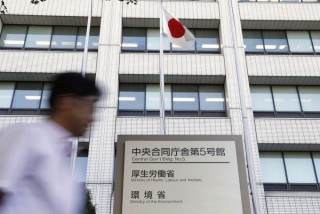Loading
Search
▼ Japan To Up Response To Quasi-Legal Drugs Amid Rising Health Fears
- Category:Other
The Japanese government is planning to bolster its response to technically legal drugs amid a spate of recent cases where young people have experienced serious adverse effects from certain substances, health ministry officials said Sunday.
Some of the products, which include a partially-altered form of cannabis, have been confirmed to be more harmful than cannabis itself, the Ministry of Health, Labor and Welfare said. With concerns of more cases emerging, the ministry is investigating sellers and has added the substances to its list of illegal "dangerous drugs."
The ministry also said the government plans to hold a meeting later this month to formalize a response over the drugs, often sold online and in stores labeled as "legal cannabis."
The ministry said that between March and June this year, nine people who took the products exhibited symptoms including disordered consciousness and convulsions, with eight of them requiring hospitalization.
In July, the ministry did on-the-spot inspections of three stores in the prefectures of Kanagawa, Osaka and Tokushima and ordered they cease sales of the technically legal drugs.
Japanese law limits the presence of tetrahydrocannabinol, a psychoactive compound naturally occurring in cannabis leaves and flowers. However, the harmful substance detected in these drugs is a modified form of THC, with alterations in its chemical structure that exempt it from legal controls.
The ministry is referring to the substance as a "THC analog," and it says testing, including on animals, has shown it to be equally or more dangerous than THC.
In July, the ministry added two drugs it had identified as detrimental to health to its list of designated substances in accordance with the pharmaceuticals and medical devices law. This classification categorizes them as dangerous drugs, making their sale or possession illegal except for medical purposes.
Dangerous drugs were formerly known as loophole drugs, which came to be seen as a major societal issue around 2013.
In 2014, a man under the influence of such drugs drove a car into pedestrians in Tokyo's Ikebukuro district, killing a woman.
The ministry went on to strengthen its crackdown on the drugs, and it emerged in July 2015 that no stores were selling the drugs.
- September 4, 2023
- Comment (0)
- Trackback(0)


